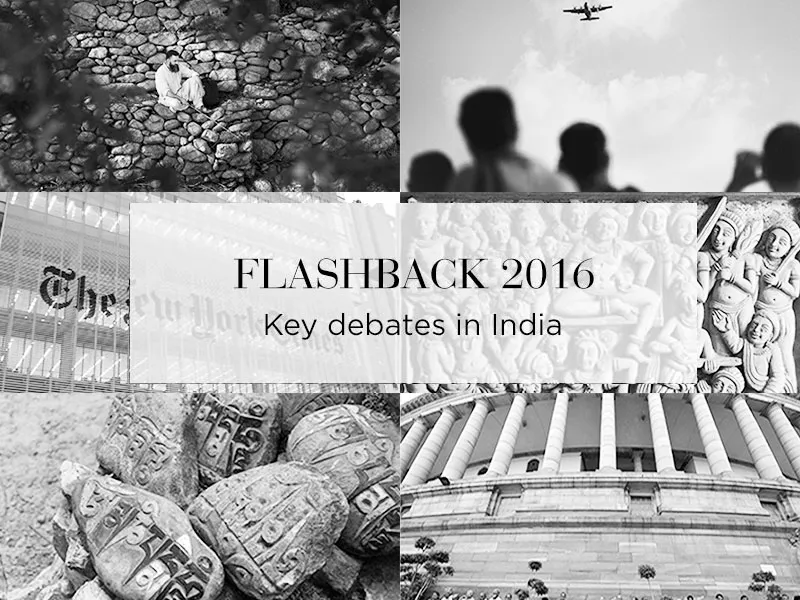 Regional parties and Indian politics
Regional parties and Indian politics
The growth of state parties, which fall broadly under the rubric of regional parties, picked up particularly after 1967.
Read more >
 Finding a long-term solution to Cauvery water dispute
Finding a long-term solution to Cauvery water dispute
Water disputes like Cauvery does not lie in ad-hoc awards by tribunals or orders by courts.
Read more >
 Dousing flames in Kashmir
Dousing flames in Kashmir
Role of media, civil society, political parties and business are significant in addition to Central and state governments in dousing the flames in Kashmir.
Read more >
 Simultaneous elections: Idea good, but is it practical?
Simultaneous elections: Idea good, but is it practical?
If election history is to be looked at, then general and state elections till 1967 were being held together. However, due to dissolutions of state assemblies in 1968 and 1969 followed by the Lok Sabha dissolve early in 1970, and general elections held in 1971 leading to a change in the way India voted.
Read more >
 Dalits — the new colour of change in the subcontinent?
Dalits — the new colour of change in the subcontinent?
As the ground, shifts beneath our feet, it's time to ask the old question: who is a Dalit?
Read more >
 The National Civil Aviation Policy needs clarity
The National Civil Aviation Policy needs clarity
The National Civil Aviation Policy, 2016, has been a case of better late than never. Had the policy been put in place a decade ago, the civil aviation sector in India would have bloomed into a mature sector with its stakeholders cornering sizeable share of the outbound international traffic from India.
Read more >
 Why The New York Times is wrong again
Why The New York Times is wrong again
The New York Times editorial has compromised on the quality of debate on the implications of India’s entry to the NSG with factually incorrect claims and arguments.
Read more >
 Lessons from the Dolkun Isa visa fiasco
Lessons from the Dolkun Isa visa fiasco
It is possible to argue that hosting Chinese dissidents is not the right retaliatory step, that it is much too escalatory because China could retaliate by hosting Kashmiri dissidents. Every retaliatory step needs to be a calculated one, with that calculation including an assessment of possible counter responses and further escalation.
Read more >
 Ask for Amravati sculptures, and not Kohinoor
Ask for Amravati sculptures, and not Kohinoor
When one looks more seriously at the issue of Indian treasures in British custody, one wonders, is Kohinoor so important when compared to other timeless assets whose exhibit will help the public.
Read more >

 Regional parties and Indian politics
Regional parties and Indian politics Finding a long-term solution to Cauvery water dispute
Finding a long-term solution to Cauvery water dispute Dousing flames in Kashmir
Dousing flames in Kashmir Simultaneous elections: Idea good, but is it practical?
Simultaneous elections: Idea good, but is it practical? Dalits — the new colour of change in the subcontinent?
Dalits — the new colour of change in the subcontinent? The National Civil Aviation Policy needs clarity
The National Civil Aviation Policy needs clarity Why The New York Times is wrong again
Why The New York Times is wrong again Lessons from the Dolkun Isa visa fiasco
Lessons from the Dolkun Isa visa fiasco Ask for Amravati sculptures, and not Kohinoor
Ask for Amravati sculptures, and not Kohinoor